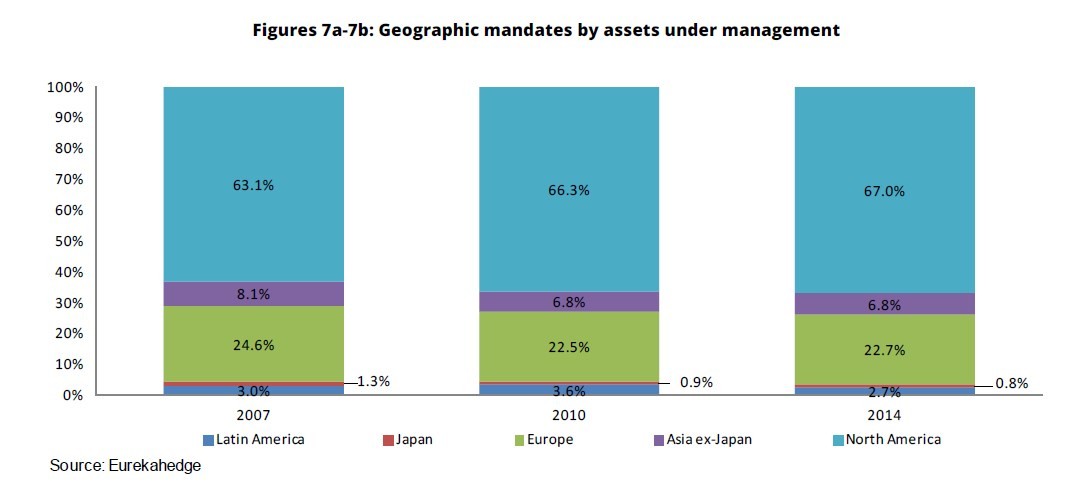Former regulators find steady work with hedge funds
Post on: 16 Март, 2015 No Comment

Related News
BOSTON/NEW YORK (Reuters) — The hedge fund industry’s latest attempt at making nice with U.S. securities regulators appears to involve going out and hiring former regulators of their own.
In recent weeks a handful of former top U.S. Securities and Exchange Commission officials have started to advise some of the world’s biggest and most prominent hedge funds.
Hedge fund manager John Paulson in June tapped former SEC chairman Harvey Pitt and former commissioner Roel Campos as outside directors at some funds run by his $35 billion firm, to help beef up compliance and governance operations.
Earlier this year, Pitt plus former SEC Commissioners Aulana Peters and Joseph Grundfest signed on as advisers to Israel Englander’s $7.8 billion Millennium Management hedge fund. Former SEC Chairman Arthur Levitt also is doing his fair share of consulting work for private equity firms and hedge funds.
The high-profile consulting assignments are raising eyebrows of some on Wall Street and Capitol Hill, who worry hedge fund managers may be trying to find ways to influence or lean on regulators. Critics see the move by hedge funds to rent-a-regulator as just one more example of the historic revolving door between government agencies and Wall Street.
When you’re trying to move from a non-regulatory environment to one where you have regulation, you can’t have the police officers negotiating for a security job for someone who they’re trying to track down for stealing, said Sen. Ted Kaufman, a Democrat from Delaware.
EX-REGULATORS ON SPEED DIAL?
But despite the skepticism, it is likely that more hedge funds will look to find their own regulatory experts, especially with the SEC moving aggressively against insider trading and federal lawmakers about to require big hedge funds to register as investment advisers.
After decades of avoiding regulatory scrutiny, many hedge funds will soon have to disclose more about their trading strategies and internal operations, making many nervous enough to seek out expert guidance.
While the regulatory advice requested can vary, the concerns run the gamut of issues currently confronting these funds, Harvey Pitt said in an email. They want to know the best way to prepare for the new onslaught of regulations, identifying and responding to potential and actual conflicts and improving investment decision-making, he explained.
Paulson signed his deal with Pitt and Campos just two months after the SEC sued Goldman Sachs Group Inc over a subprime mortgage-linked security that the investment bank had arranged so the hedge fund could bet against it.
While the SEC did not allege any wrongdoing at the hedge fund, the lawsuit has tarnished John Paulson’s well-crafted image as a savvy manager and prompted some grumbling among investors who privately considered pulling their money out.
Paulson, who personally earned $3 billion for having the foresight to short the U.S. housing market before it crumbled and is known for paying for outstanding research, declined to comment, according to a spokesman for the fund.
Hedge funds want someone who’s been on the inside and know how it works, said Scott Berman, a partner at law firm Friedman Kaplan Seiler & Adelman. They are buying the guy’s brains, he said.
WORRIES ABOUT TRYING BUY ACCESS
But Sen. Kaufman, a frequent critic of the SEC, said the accelerated trend of hedge funds funds hiring former top regulators as advisers can be problematic. For too long, high-level SEC employees have left government to immediately take lucrative jobs in the securities industry, he said.
He was especially critical when high-frequency trader Getco LLC recently hired a key SEC official who oversaw that area of the market and said the SEC should consider banning senior officials from taking jobs at companies directly affected by their recent government activities.
Lawyers who work with hedge funds, however, said there is nothing wrong with managers looking to bring on advisers who once worked in government, saying it makes sense for hedge fund managers to surround themselves with former regulators who understand the intricacies of the changing face of the law.
What these people can provide is intelligence and insight into how the SEC might react and what regulators might be thinking, said George Mazin, a partner in the financial services group at law firm Dechert LLP.
And for former top regulators, the hedge fund advising jobs are a way to parlay all that government experience into potentially lucrative assignments. Industry analysts say that regulators-for-hire can fetch anywhere from as little as $10,000 a year to as much as $100,000 or more per assignment.
Pitt, for example, said he works with funds that are trying to get ahead of the curve, and are looking at the various ways in which new regulations could influence their existing businesses.
Similarly, former SEC Commissioner Paul Atkins now consults with hedge funds on regulatory matters, including a fund that had some involvement in the big Galleon Group insider trading case.
FOLLOW THE MONEY
A Reuters analysis found that least nine of the last 30 commissioners to leave the SEC — including Pitt and Levitt — have done some type of advisory work with hedge funds. Other former commissioners appear to have done work for hedge funds in their capacities as lawyers or consultants in private practice.

People usually go where the money is and there is definitely more money and less heavy lifting available in the hedge fund industry right now, said Cornelius Hurley, a professor at the Boston University School of Law and a former counsel to the Federal Reserve Board of Governors.
The industry’s top hedge fund managers routinely earn hundreds of millions of dollars a year and many spend heavily on research and outside help.
Of course, the movement from the SEC to securities industry work is nothing new.
In 2003, John Freeman, a professor at the University of South Carolina Law School, found that 80 percent of former employees of the SEC’s investment management division were either working in-house at investment companies or as advisers to the mutual fund industry.
Similarly, Freeman said he’s not surprised to see former SEC commissioners jumping to the hedge fund circuit.
Hedge funds need them now, Freeman said. With all the new laws and regulation, they’re saying we better get ourselves a few smart guys to help us schmooze with the SEC.
Indeed most regulators — short of Richard Breeden, a former SEC chairman who now runs his own hedge fund — are not hired to make investments. And — ironically enough — that lack of investment experience could be a potential downside for the funds that hire them, some lawyers said.
INVESTORS TAKE SOME COMFORT
Still, to many hedge fund investors, the trend of hiring regulators is mildly comforting.
Aesthetically and from a due diligence perspective, it gives investors comfort to know someone who looks at things with a regulatory eye is in your shop, said Peter Greene, vice chair of the investment management division at law firm Lowenstein Sandler in New York.
But at the end of the day, one investor said it’s not who a hedge fund manager turns to for regulatory advice that matters. The most important measure for investing or not is still the returns a manager generates.
I don’t really care who he hires as long as the returns are strong, said Bradley Alford, founder of Alpha Capital Management, which invests with Paulson.
(Editing by Gerald E. McCormick)














